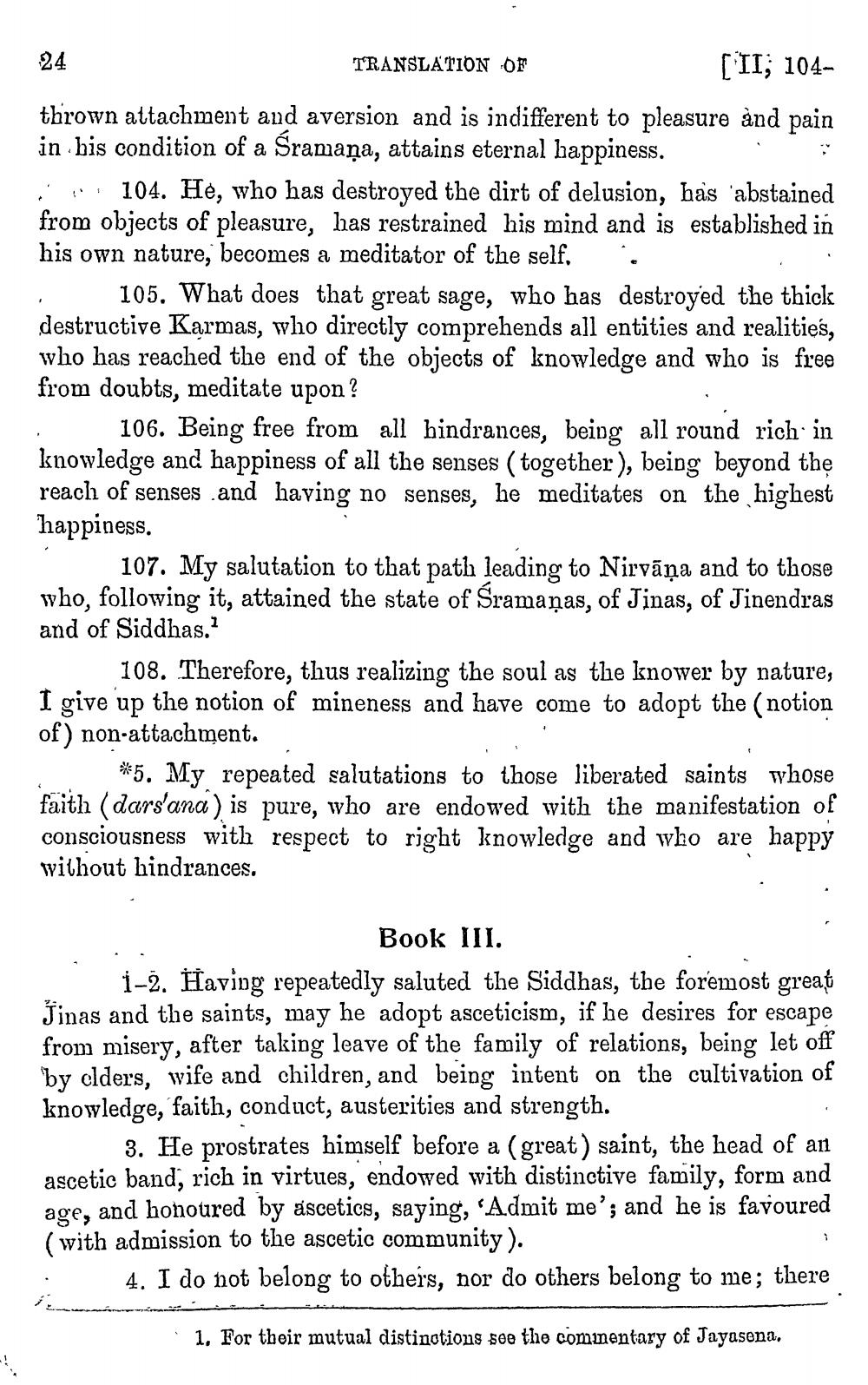________________
24
TRANSLATION OF
[II; 104thrown attachment and aversion and is indifferent to pleasure and pain in bis condition of a śramaņa, attains eternal happiness. : 1. 104. He, who has destroyed the dirt of delusion, has 'abstained from objects of pleasure, has restrained his mind and is established in his own nature, becomes a meditator of the self.
105. What does that great sage, who has destroyed the thick destructive Karmas, who directly comprehends all entities and realities, who has reached the end of the objects of knowledge and who is free from doubts, meditate upon ?
106. Being free from all hindrances, being all round rich in knowledge and happiness of all the senses ( together), being beyond the reach of senses and having no senses, he meditates on the highest happiness.
107. My salutation to that path leading to Nirvāṇa and to those who, following it, attained the state of Sramaņas, of Jinas, of Jinendras and of Siddhas.?
108. Therefore, thus realizing the soul as the knower by nature, I give up the notion of mineness and have come to adopt the (notion of) non-attachment.
*5. My repeated salutations to those liberated saints whose faith (dars'ana) is pure, who are endowed with the manifestation of consciousness with respect to right knowledge and who are happy without hindrances.
Book III. 1-2. Having repeatedly saluted the Siddhas, the foremost great Jinas and the saints, may he adopt asceticism, if he desires for escape from misery, after taking leave of the family of relations, being let off by clders, wife and children, and being intent on the cultivation of knowledge, faith, conduct, austerities and strength.
3. He prostrates himself before a (great) saint, the head of an ascetic band, rich in virtues, endowed with distinctive family, form and age, and honoured by ascetics, saying, 'Admit me'; and he is favoured (with admission to the ascetic community).
4. I do not belong to others, nor do others belong to me; there
1. For their mutual distinctions see the cominentary of Jayasena.




